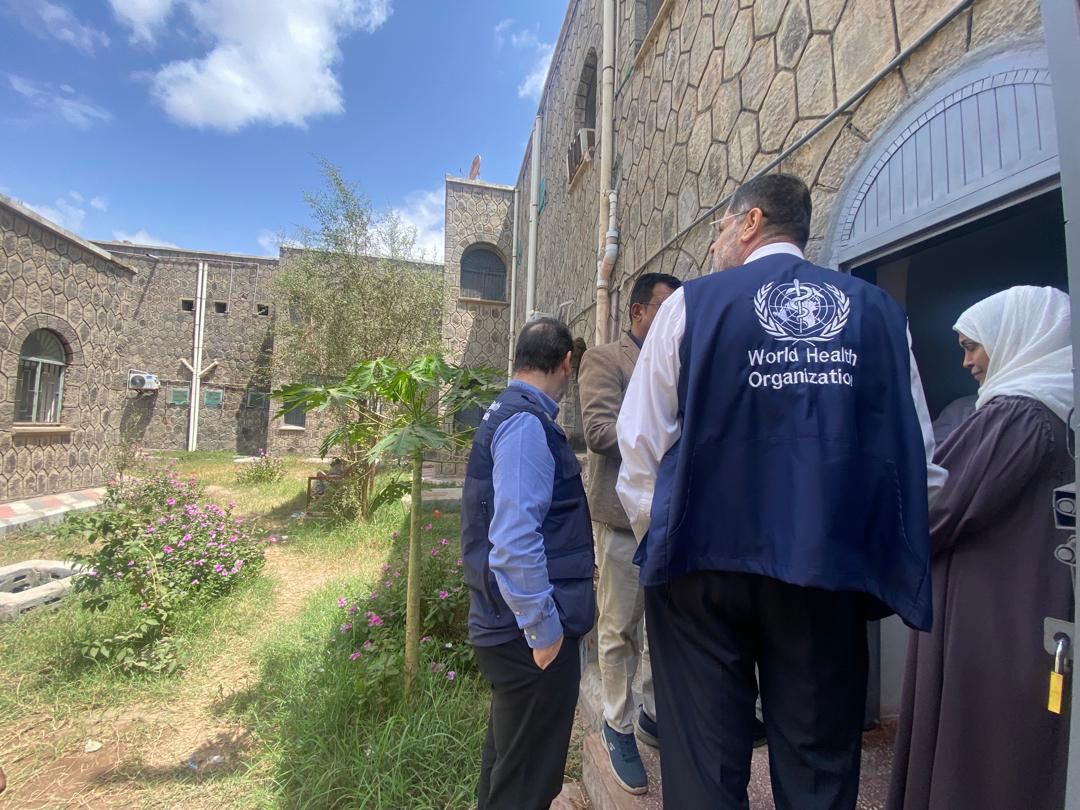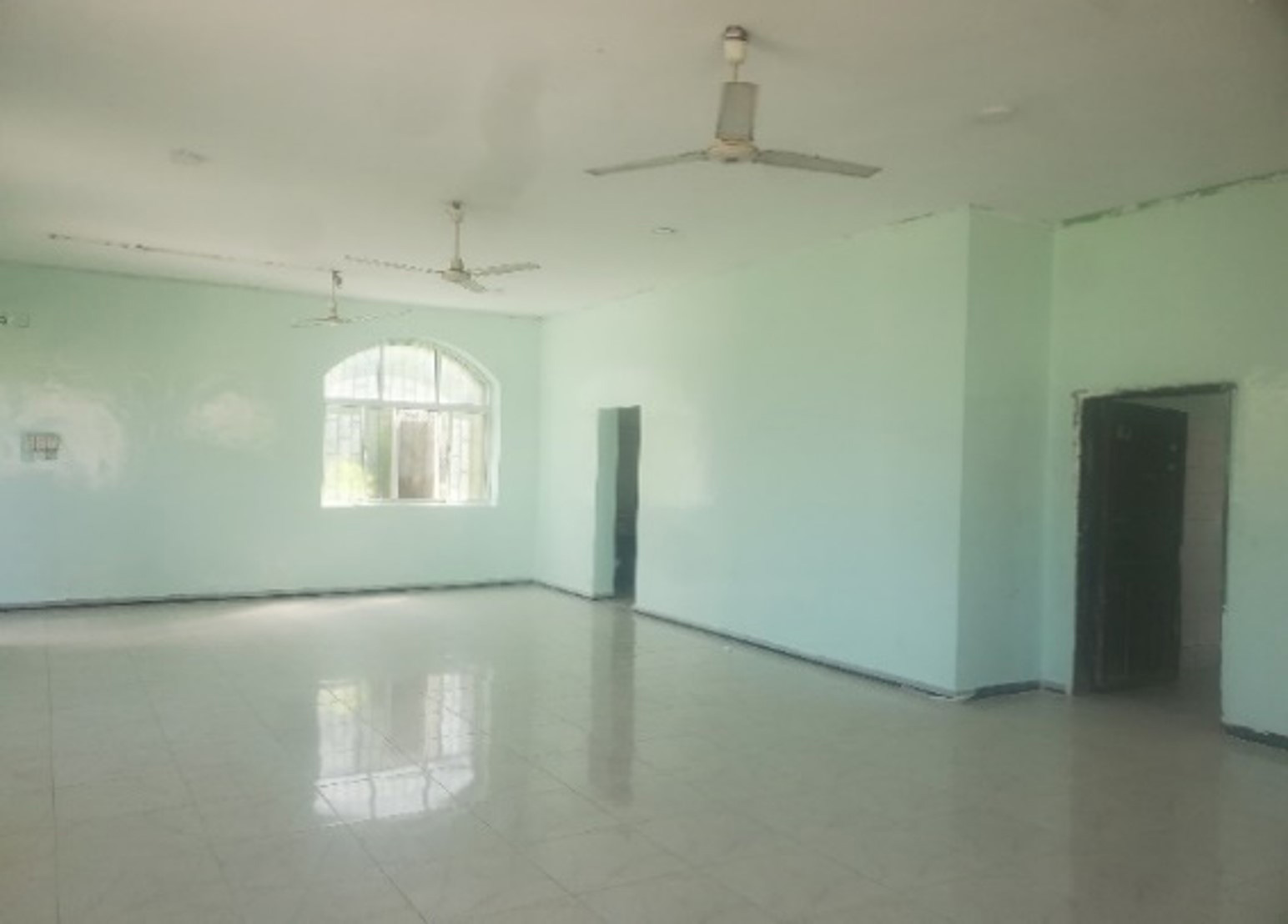 WHO technical officers visit Aden Psychiatric Hospital. Photo credit: WHO/A. Abdulqawi 15 July 2024, Aden, Yemen – The conflict and protracted humanitarian crisis in Yemen have taken a significant toll on the physical and mental well-being of the population. Estimates suggest that 1 in 4 people in Yemen have mental disorders that require intervention. This high burden of illness – coupled with stigma and superstition, lack of psychiatrists and psychologists, and facilities in dire need of repair – causes ongoing barriers to access to care.
WHO technical officers visit Aden Psychiatric Hospital. Photo credit: WHO/A. Abdulqawi 15 July 2024, Aden, Yemen – The conflict and protracted humanitarian crisis in Yemen have taken a significant toll on the physical and mental well-being of the population. Estimates suggest that 1 in 4 people in Yemen have mental disorders that require intervention. This high burden of illness – coupled with stigma and superstition, lack of psychiatrists and psychologists, and facilities in dire need of repair – causes ongoing barriers to access to care.
Enhancing mental health care is thus a key area of work for WHO as part of the Emergency Human Capital Project (EHCP) with the World Bank.
WHO Representative to Yemen Dr Arturo Pesigan explained: “With the World Bank’s support via EHCP, we have launched a national mental health strategy and initiated surveillance of mental disorders using DHIS2. We have trained more than 150 health workers at facility and district levels to improve mental health care, and set up 19 clinics focused on community-based care. Just recently, we have rehabilitated key areas at 3 psychiatric hospitals.”
Rehabilitation of key areas of Aden Psychiatric Hospital, Al-Talh in Sa’ada, and Taizz Psychiatric Hospital was completed in line with the environmental and social management plans cleared by the World Bank. Taking a rights-based approach to health care, the development of these plans involved consulting with health workers, patients, caregivers and other stakeholders.
 The completed rehabilitation of Aden Psychiatric Hospital. Photo credit: WHO/A. Al MazaggiEngaging affected communities in this planning led to rehabilitation beyond merely structural areas of need, such as to renovate bathrooms and plaster and paint walls. Instead, the work grew to include the enrichment of patient spaces – for example, by installing outdoor shaded seating and a walking path for patients at Aden’s hospital.
The completed rehabilitation of Aden Psychiatric Hospital. Photo credit: WHO/A. Al MazaggiEngaging affected communities in this planning led to rehabilitation beyond merely structural areas of need, such as to renovate bathrooms and plaster and paint walls. Instead, the work grew to include the enrichment of patient spaces – for example, by installing outdoor shaded seating and a walking path for patients at Aden’s hospital.
The planning process also provided a platform to negotiate and improve access to health care as a human right. WHO used the planned works at the Taizz hospital to successfully advocate for the reopening of its women’s ward. This facility is 150 metres from an active frontline and the ward had been closed for some time owing to shortages of qualified staff and psychotropic medications and a general decline in services. Reopening the ward is a key step towards ensuring the availability of equitable mental health care.
Completion of the works means that the hospitals now have more functional wards. This will allow them to revitalize their services and improve the quality of care. WHO will also provide new furniture to the rehabilitated facilities by May 2024.
Dr Abulraqeeb Mihriz, Director-General of Curative Medicine at the Ministry of Public Health and Population, remarked: “I deeply appreciate the support of WHO in rehabilitating the hospitals and providing them with medical supplies, fuel and training. This support has achieved positive results in improving medical services and we would like to thank WHO and the World Bank for the excellent collaboration.”
Related links
National Mental Health Strategy in Yemen, 2022–2026
Tackling mental health challenges in Yemen by building capacities




